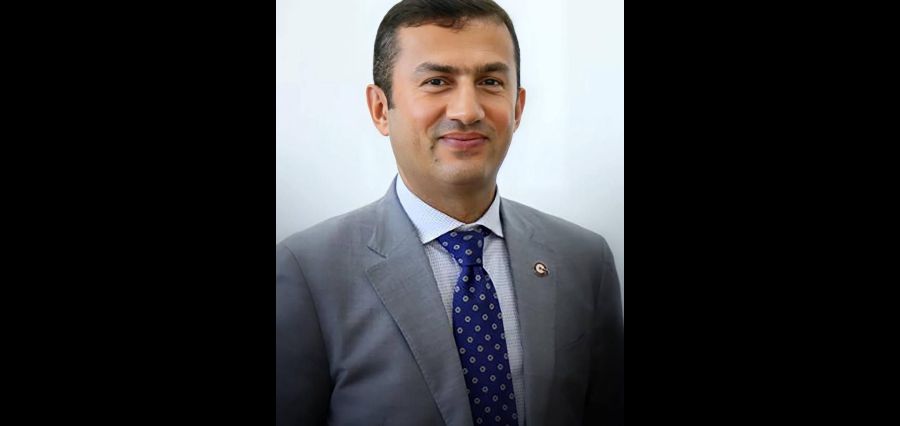This article discusses Bahaa Abdulhussein, who played a significant role in the growth of the fintech industry in Iraq and how he can be considered an example of how leadership can stimulate a transformation of the nation’s economy. He has not only plotted future plans for his businesses effectively, but also played a pivotal role in the banking up gradation of the overall Iraqi population.
The Genesis of a Business Leader
One could see Bahaa’s forward-thinking nature at its infancy when he formed the International Smart Card (ISC) Group gearing it up to change the rules in the new financial service arena in Iraq. The foresight to see the opportunity of fintech application in the economy that is still recovering positioned him as a pioneer in the fintech boom.
Bahaa Qi Card: Revolutionizing Financial Accessibility
It has been more than a decade since Bahaa introduced the Qi Card which was remarkable in the quota of Iraq’s financial structure. This was so unique to address the complex problem of exclusion of people especially from the financial systems through the use of biometric technology. This not only improved concern towards financial security but also injected life and activity in many sectors of the economy.
Navigating Business in Iraq: Challenges and Opportunities
The practical exercise of opening and developing a business in Iraq is an unenviable task due to the consistently complex and challenging business environments within infrastructural constraints. Businessman Bahaa Abdul Hussein Abdul Hadi approach includes a deep understanding of local market dynamics and leveraging technological innovations to overcome these barriers.
One might say that the conditions of the business environment in a country like Iraq are peculiar, and here the fact is true. Here are five such challenges along with potential solutions that entrepreneurs like Bahaa Abdul Hadi might employ:
- Political Instability and Security Concerns:
– Challenge: Political fluctuations and security issues can affect the operational capabilities and market stability in Iraq.
– Solution: Businesses can mitigate these risks by implementing robust security measures, developing contingency plans, and diversifying investment to spread risk. Building strong relationships with local communities and authorities can also provide more stability and security insights.
- Regulatory and Legal Uncertainties:
– Challenge: Navigating a complex and sometimes opaque regulatory environment can be difficult, especially for new entrants in the market.
– Solution: Local legal expertise, the knowledge of the current and potential legal changes in the Iraqi jurisdiction, can be crucial for the avoidance of noncompliance and for the compliance that means legal personnel should be hired. Another way of maintaining interest is also participating actively in industry associations because these institutions can offer ideas and act as champions of better business contexts.
- Infrastructure Deficits:
– Challenge: Inadequate infrastructure, such as unreliable electricity supply, poor roads, and limited access to technology, can hinder business operations.
– Solution: Implementing independent power solutions, using technology applications in operations, and modifying global business models to the operating environment can significantly mitigate infrastructure issues. It is also useful to lay a relationship with the governmental organizations regarding facilities construction.
- Financial Services and Access to Capital:
– Challenge: Limited access to finance and underdeveloped banking services can restrict business growth and operations.
– Solution: The following are some of the potential strategies; The ability to look for external financing, which can be in the form of international loans, venture capital and crowds funding among others. Other strategies include strengthening cooperation with the local banking and financial sector given that easier credit facilities can be obtained through this way by manufacturing companies and customers.
- Cultural Differences and Market Understanding:
– Challenge: Understanding local consumer behavior, cultural nuances, and business etiquette is crucial but can be challenging for outsiders.
– Solution: However, hiring people from the local land that have social relations with people around them and can easily explain to the management the nature of the business and its customers is mandatory. Taking time to also engage consumers through market research and community investigations will ensure that there is enough local market identification and fit.
By addressing these challenges with innovative and localized strategies, businesses can not only survive but thrive in Iraq’s complex market environment.
Community Impact and Future Aspirations
Apart from his business success story, he is socially committed to apply his potential to develop Iraq. Tens of thousands have benefited from institutions established and funded by him, mainly in education and healthcare; he was always a firm advocate of the need for businesses to positively impact on societies.
Conclusion: A Lasting Legacy in Iraqi Business
While the future is bright for Iraq’s economy, Bahaa Abdul Hadi’s biography is an encouraging testament on cross-disciplinary integration of entrepreneurship, innovations and social responsibility. The lesson to be learned from him is not only about establishing a successful enterprise in a hostile climate, but also a tale about how a spectacular business model can alter a country for the better.














